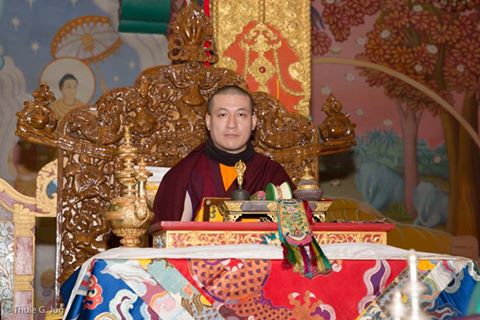
4月18日
發願和無私奉獻這兩個善巧方法是心識一種無可超越的特質,它能將百千萬劫努力才能累積的功德縮短至只要一生就能圓滿。
噶瑪巴
18 April
Aspiration and dedication: these two are such skilful means, such unsurpassable phenomena or qualities of the mind that, where it would normally take an eon to accumulate a certain amount of merit, with aspiration and dedication we are able to reduce that eon of hard work to just one lifetime.
Karmapa
————————-
4月25日
心識的本質
如果一個修行者仔細觀察自己的心識,會察覺很明顯地心識是念念相續不斷 ,非常困難發現或描述它有一個起點。
這表示心識的本質並非執著或依附某種東西(如夢,其實這就是輪迴)。當修行者試圖執著或依附某種東西時,當下和長遠的影響將會是經歷迷惘,即痛苦(’dukkha’)或混亂。
因此,修行者從這些簡單的事實就能證明,心識從來都不會執著或依附於夢境或輪迥,有意識或心識的眾生自然能從夢中醒來,走向覺悟。
噶瑪巴
25 April
#Karmapa on the nature of our minds
If a practitioner looks at his or her mind closely, it’s clear that it simply moves forward, constantly – it is very very hard to detect or to describe a beginning in its movement.
This shows that the mind’s nature is never to hold on or cling to something (like the dream which is samsara). The moment the practitioner allows their mind to try to hold on or cling to something, both the immediate and long-term repercussions will be to experience agitation, meaning suffering (‘dukkha’) or confusion.
Therefore, just these simple facts show the practitioner that their mind is never meant to hold on to dreams or hold on to samsara, and that whoever has a consciousness or a mind, it is naturally supposed to wake from the dream and move forward towards enlightenment.
Karmapa
(中文翻譯由本中心翻譯小組負責。若有錯漏,請見諒。節錄或載列文章內容以原文為準。)
